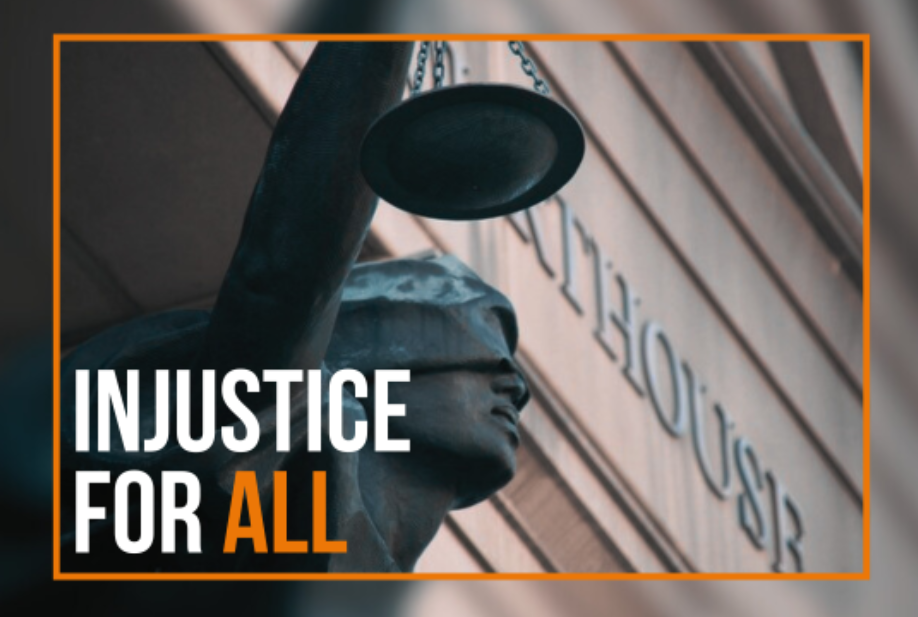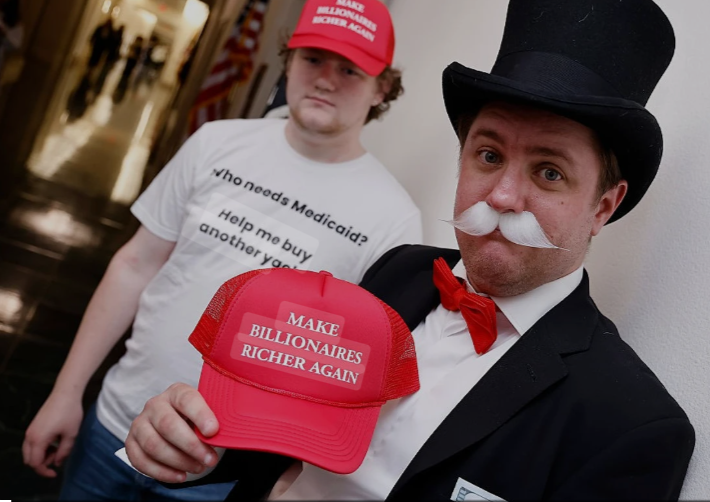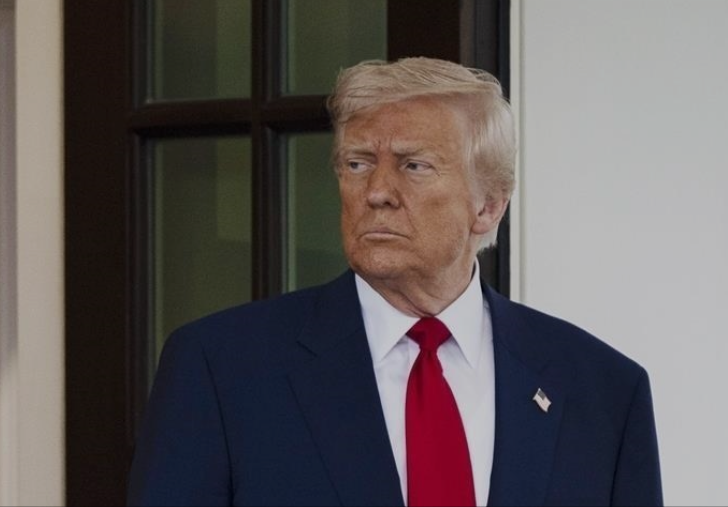Injustice for All is a weekly deep-dive into how Donald Trump and his allies continue to weaponize the American justice system—and the growing resistance pushing back to uphold the rule of law.
Courts Are Running Out of Patience with Trump’s Unconstitutional Overreach
Federal courts are beginning to lose their tolerance for Donald Trump’s long-running efforts to dismantle government institutions by executive fiat. Judges are increasingly signaling that they will no longer serve as rubber stamps for a former president who refuses to respect the Constitution, Congress, or even basic civics.
Just this week, U.S. District Judge John McConnell issued a decisive ruling blocking the Trump administration’s attempt to eliminate three critical federal agencies: the Institute of Museum and Library Services, the Minority Business Development Agency, and the Federal Mediation and Conciliation Service.
McConnell’s ruling was more than just a routine judicial correction—it was a scathing reminder that no president, including Trump, can unilaterally dismantle institutions created by Congress. His ruling pointed to three major legal violations: the separation of powers, the Administrative Procedure Act (APA), and the Take Care Clause of the Constitution.
Under the APA, federal agencies are required to justify their actions with factual evidence and reasoned analysis. Trump’s administration offered neither. Instead, it attempted to arbitrarily shutter agencies without any substantive rationale—a clear violation of federal law.
The Take Care Clause, found in Article II of the Constitution, obligates the president to “take Care that the Laws be faithfully executed.” But McConnell concluded that Trump’s executive order flouted this mandate by ignoring Congress’s authority to create and fund government entities. In McConnell’s words, Trump’s actions “disregard the fundamental constitutional role of each of the branches of our federal government,” particularly Congress’s sole authority to appropriate funds and make laws.
This isn’t the first time Judge McConnell has had to teach the Trump administration basic civics. He previously ruled against Trump’s attempts to freeze federal funds, emphasizing again that the president is not a monarch and cannot override Congress.
Judge Jamal Whitehead Slams Trump’s Refugee Order Games
Another federal judge, U.S. District Judge Jamal Whitehead, also made headlines for blocking a Trump executive order that suspended the U.S. Refugee Assistance Program (USRAP). Trump’s executive order attempted to gut a congressionally created program—yet again by executive action alone.
When the Ninth Circuit Court of Appeals narrowed the scope of the injunction, Trump’s legal team responded with bad-faith interpretations. They claimed the order only applied to refugees traveling within two weeks of Jan. 20—despite there being no such time limit in the court’s ruling.
Judge Whitehead wasn’t having it.
“This Court will not entertain the Government’s result-oriented rewriting of a judicial order,” Whitehead wrote, expressing deep frustration. He also warned the administration that it must comply with the law and follow direct court orders, not twist them to fit political goals.
Ed Martin Is Out—But the Threat Remains
In a surprising but welcome development, Trump’s original nominee for U.S. Attorney in Washington, D.C., Ed Martin, is officially out. His reputation for bullying and extremism was so toxic that even Republican Senator Thom Tillis publicly withdrew support—despite previously voting for far-right Defense Secretary nominee Pete Hegseth.
Martin’s defeat is a short-term win for legal integrity, but his replacement may be even worse. Trump’s new nominee is Fox News personality and diehard election denier Jeanine Pirro, who remains embroiled in a $2.7 billion defamation lawsuit from voting machine company Smartmatic. In Trump’s world, that level of legal baggage is a qualification, not a liability.
Elite Law Firms Are Paying the Price for Ties to Trump
It’s not just the judiciary rejecting Trumpism. Top law firms are facing backlash for aligning with him. Cadwalader, Wickersham & Taft—New York’s oldest law firm—reportedly offered Trump legal assistance as part of a $100 million “pro bono” deal. However, the firm wouldn’t represent him in his criminal cases.
After partner Todd Blanche left to form a new firm just to represent Trump, Cadwalader began hemorrhaging legal talent. Attorneys are leaving in droves, unwilling to associate with a firm that aligns itself with Trump’s legally and ethically questionable agenda—including defending police misconduct and corruption.
Trump’s Hypocrisy on Foreign Influence Reaches New Heights
Trump’s latest executive order targets universities under the guise of combating foreign influence. The order demands that institutions disclose all international donations over $250,000 and surrender internal communications with foreign nationals—particularly targeting schools like Harvard.
But while Trump claims he’s defending academic independence from foreign manipulation, his actions reveal stunning hypocrisy. His own family has openly profited from foreign deals, including shady cryptocurrency ventures with direct ties to foreign governments.
Meanwhile, his administration paused enforcement of the Foreign Corrupt Practices Act and dialed back the Foreign Agents Registration Act—both of which are designed to prevent corruption and undisclosed foreign lobbying. Unsurprisingly, his allies like Paul Manafort and Elliott Broidy were previously charged under these very statutes.
Rather than comply with the law, Trump seeks to dismantle it—especially when it threatens him or his inner circle.
Final Thought: The Courts Are Reasserting the Rule of Law
Trump continues to treat the Constitution as a suggestion and the presidency as a platform for revenge and enrichment. But judges across the country are pushing back, sending a clear message: No one—not even a former president—is above the law.
Trump’s attempts to erase government institutions, defy judicial orders, and weaponize justice for personal gain are being met with increasing resistance from principled jurists and institutions.
It’s a slow grind, but the legal system is proving that accountability is still possible—even when it has to teach the former president remedial civics along the way.



